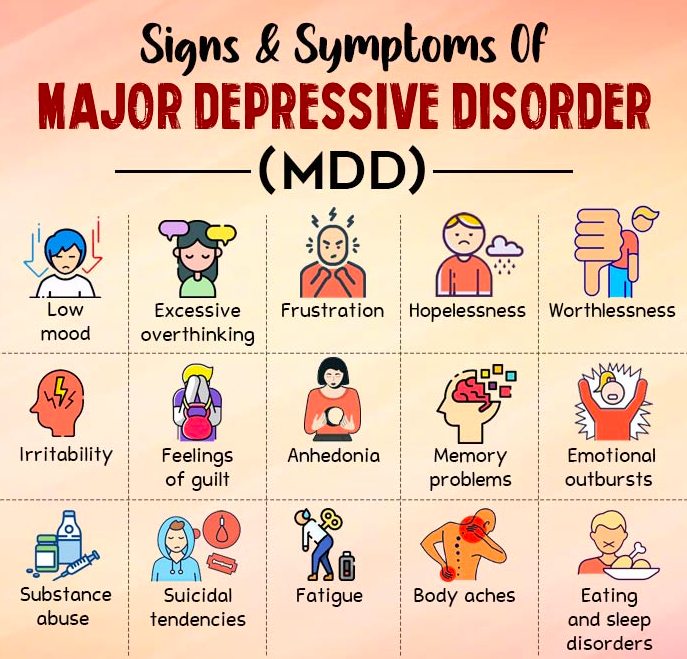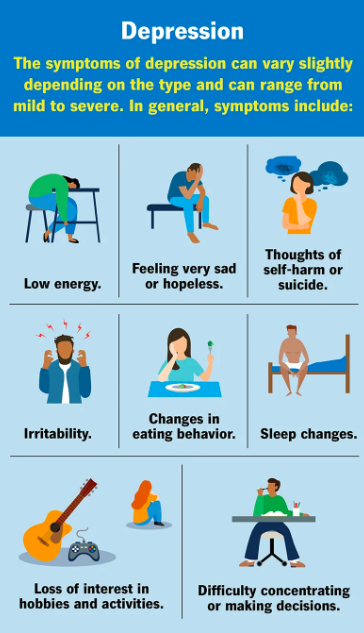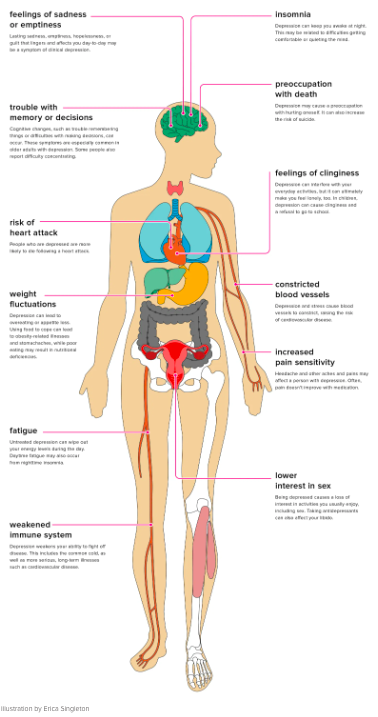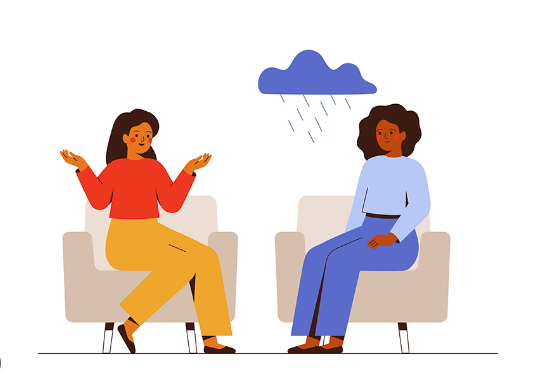DEPRESSION
- What’s the difference between sadness and depression?
- When is it important to see an specialist?
Sadness and depression are related emotional experiences, but they are distinct and have different characteristics:
Sadness is a natural and temporary emotional response to a specific event, loss, or disappointment. It is a normal human emotion that everyone experiences from time to time.
Sadness is usually triggered by a particular situation or event, such as the loss of a loved one, a breakup, failure, or disappointment.
This emotional response is often accompanied by feelings of disappointment, sorrow, or grief, and the intensity of sadness varies, and it tends to decrease over time as individuals process their emotions and adapt to the situation.
Sadness doesn’t usually interfere significantly with a person’s ability to function in their daily life or carry out their responsibilities.
On the other hand, depression is a mental health disorder characterized by persistent and pervasive feelings of sadness, hopelessness, and despair that persist over an extended period.
It is not always triggered by a specific event, and it can arise without any obvious cause.
Depressed individuals may experience a range of emotional, cognitive, and physical symptoms, including loss of interest or pleasure in activities they once enjoyed, changes in sleep patterns, fatigue, difficulty concentrating, feelings of worthlessness or guilt, and even thoughts of self-harm or suicide.
Depression often lasts for weeks, months, or even longer, and it can significantly impair a person’s ability to function in their daily life, affecting relationships, work, and overall well-being.
5. Clinical depression requires professional evaluation and treatment, as it is a serious mental health condition that can have severe consequences if left untreated.
In summary, sadness is a normal emotional response to a specific event or loss and tends to be temporary, while depression is a prolonged and more severe mental health disorder with a wider range of symptoms that can significantly impact a person’s life. It is essential to seek help from a mental health professional if you or someone you know is experiencing persistent feelings of sadness or depression.

The American Psychiatric Association’s Diagnostic Statistical Manual of Mental Disorders, Fifth Edition (DSM-5) classifies depressive disorders as the following:
- Clinical depression (major depressive disorder): A diagnosis of major depressive disorder means you’ve felt sad, low or worthless most days for at least two weeks while also having other symptoms such as sleep problems, loss of interest in activities or change in appetite. This is the most severe form of depression and one of the most common forms.
- Persistent depressive disorder (PDD): Persistent depressive disorder is mild or moderate depression that lasts for at least two years. The symptoms are less severe than major depressive disorder. Healthcare providers used to call PDD dysthymia.
- Disruptive mood dysregulation disorder (DMDD): DMDD causes chronic, intense irritability and frequent anger outbursts in children. Symptoms usually begin by the age of 10.
- Premenstrual dysphoric disorder (PMDD): With PMDD, you have premenstrual syndrome (PMS) symptoms along with mood symptoms, such as extreme irritability, anxiety or depression. These symptoms improve within a few days after your period starts, but they can be severe enough to interfere with your life.
- Depressive disorder due to another medical condition: Many medical conditions can create changes in your body that cause depression. Examples include hypothyroidism, heart disease, Parkinson’s disease and cancer. If you’re able to treat the underlying condition, the depression usually improves as well.
There are also specific forms of major depressive disorder, including:
- Seasonal affective disorder (seasonal depression): This is a form of major depressive disorder that typically arises during the fall and winter and goes away during the spring and summer.
- Prenatal depression and postpartum depression: Prenatal depression is depression that happens during pregnancy. Postpartum depression is depression that develops within four weeks of delivering a baby. The DSM refers to these as “major depressive disorder (MDD) with peripartum onset.”
- Atypical depression: Symptoms of this condition, also known as major depressive disorder with atypical features, vary slightly from “typical” depression. The main difference is a temporary mood improvement in response to positive events (mood reactivity). Other key symptoms include increased appetite and rejection sensitivity.
People with bipolar disorder also experience episodes of depression in addition to manic or hypomanic episodes.


Causes of Depression:
Depression has various potential causes, and it often results from a combination of factors, such as:
1. Biological factors: Changes in brain chemistry and neurotransmitter imbalances, such as serotonin, norepinephrine, and dopamine, can play a role in depression. Genetics can also increase the risk of developing depression, as individuals with a family history of the disorder may be more vulnerable.
2. Environmental factors: Certain life events, such as the death of a loved one, relationship issues, financial problems, academic or work-related stress, trauma, or abuse, can trigger depression in susceptible individuals.
3. Psychological factors: Certain personality traits, such as having a negative outlook, low self-esteem, or a tendency to ruminate on negative thoughts, can contribute to the development of depression.
4. Physical health conditions: Chronic illnesses, hormonal imbalances, and other medical conditions can be linked to depression. Additionally, certain medications used to treat physical health problems may have depression as a side effect.
5. Substance abuse: Alcohol and drug abuse can increase the risk of depression. Additionally, depression can sometimes lead to substance abuse as individuals may turn to drugs or alcohol to cope with their emotional pain.
6. Social isolation: Feelings of loneliness and social isolation can contribute to the development of depression, as human connections and support play a significant role in mental well-being.
7. Stress: Persistent or overwhelming stress can impact the brain and increase the likelihood of developing depression.

Therapy for Depression:
Depression is one of the most treatable mental health conditions. Approximately 80% to 90% of people with depression who seek treatment eventually respond well to treatment.
Psychotherapy entails engaging in conversations with a mental health professional. Through this process, your therapist assists in recognizing and transforming unhealthy emotions, thoughts, and behaviors. Numerous types of psychotherapy exist, with cognitive-behavioral therapy (CBT) being the most prevalent. In certain cases, brief therapy proves sufficient, while others may choose to continue therapy for several months or even years.
BOOK APPOINTMENT & INFO
Together we will find the way to help you
- Call us: 0451344805
- +61451344805
- [email protected]
- ps_constanza
- 410/251 Oxford Street, Bondi Junction, 2022
